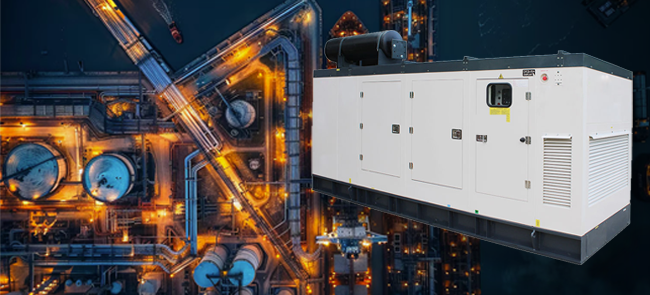
Aluminum castings play a crucial role in the gensets (generator sets) and generators industry, providing lightweight, durable, and corrosion-resistant components essential for efficiency and longevity.
- Lightweight: Aluminum castings provide excellent strength-to-weight ratio. Reduces the overall weight of generators and gensets, making transportation and installation easier.
- Corrosion Resistance: Naturally resistant to rust and corrosion, even in harsh environments. Ideal for outdoor and marine applications where exposure to moisture is high.
- High Thermal Conductivity: Aluminum has high thermal conductivity, ensuring better heat dissipation. Prevents overheating, improving efficiency and longevity of the generator.
- Dimensional Stability: Can withstand high operational stress and vibrations. Ensures long-lasting performance with minimal maintenance.
- Electrical Conductivity: Although not as conductive as copper, aluminum offers adequate electrical properties for specific generator components. It can be used in enclosures and housings without compromising performance.
- High Design Flexibility: Aluminum casting allows for complex shapes and intricate designs. Reduces the need for additional machining and assembly, lowering production costs.
- Cost-Effective Production: Die-casting and sand casting techniques allow for mass production at lower costs. Reduces material waste compared to other manufacturing method.
Aluminum castings are widely used in the gensets and generator industry due to their lightweight, high strength-to-weight ratio, corrosion resistance, and excellent thermal conductivity. Several manufacturing processes are employed to produce these castings, depending on the complexity of design, production volume, and required mechanical properties.
The selection of an aluminum casting process for gensets and generators depends on factors like production volume, component complexity, mechanical properties, and cost constraints. Die casting and sand casting are the most commonly used processes due to their balance of cost, quality, and scalability.
Each of these processes is chosen based on the specific requirements of the genset or generator component, balancing factors like cost, strength, weight, and production volume.
- Die Casting: Best for high-volume production of precision parts.
- In High-Pressure Die Casting (HPDC) the molten aluminum is injected under high pressure into a steel mold. It is used for high-volume production of lightweight components and Produces parts with good surface finish and dimensional accuracy.
- In Low-Pressure Die Casting (LPDC) the Molten metal is pushed into the mold cavity under low pressure. It ensures good metallurgical quality with reduced porosity and is used for structural components requiring high integrity.
- Sand Casting:
- Suitable for complex, larger components with lower production costs. Molten aluminum is poured into a sand mold cavity, which is then broken away after solidification. It has good mechanical properties when heat-treated and is Cost-effective for low to medium production volumes.
- Gravity Die Casting:
- In Gravity Die Casting (Permanent Mold Casting) the molten aluminum is poured into a permanent steel or iron mold without pressure. It has better mechanical properties than sand casting, reusable molds reduce cost over time. It is applied in Cylinder heads, stator frames, and generator enclosures.
- Provides improved strength with controlled metal flow. Molten aluminum is poured into a permanent steel or iron mold without pressure. It produces denser, stronger parts with better mechanical properties than sand casting and is suitable for medium production runs.
- Good mechanical properties, improved surface finish over sand casting. Uses reusable metal molds for better accuracy and strength compared to sand casting. Suitable for electrical components like switchgear parts and small enclosures.
- Centrifugal Casting:
- The Molten aluminum is poured into a rotating mold, creating cylindrical parts through centrifugal force. It has high material density, strong and defect-free components.
- Investment Casting (Lost Wax Casting):
- A wax pattern is coated with ceramic, then melted away to create a mold for aluminum pouring. It gives high accuracy, excellent surface finish and minimal machining required. It is ideal for small, complex components with intricate details.
- Vacuum-Assisted Casting:
- Uses vacuum pressure to remove air and gases from the mold cavity, ensuring high-quality castings. It reduces porosity, improves mechanical properties.
- Squeeze Casting:
- The process combines casting and forging, where molten aluminum is poured into a mold and squeezed under pressure. It produces high-strength, near-net-shape components with minimal porosity and is used for high-performance applications.
- Continuous Casting:
- Molten aluminum is continuously cast into billets or slabs for further processing. Produces high-quality raw material for machining and reduces material waste